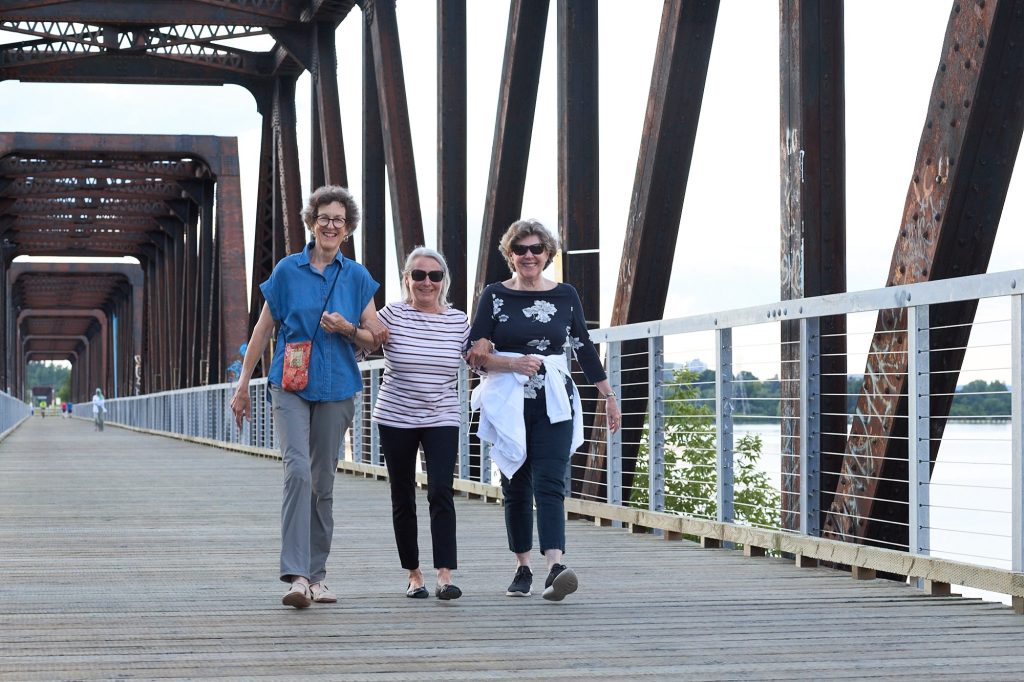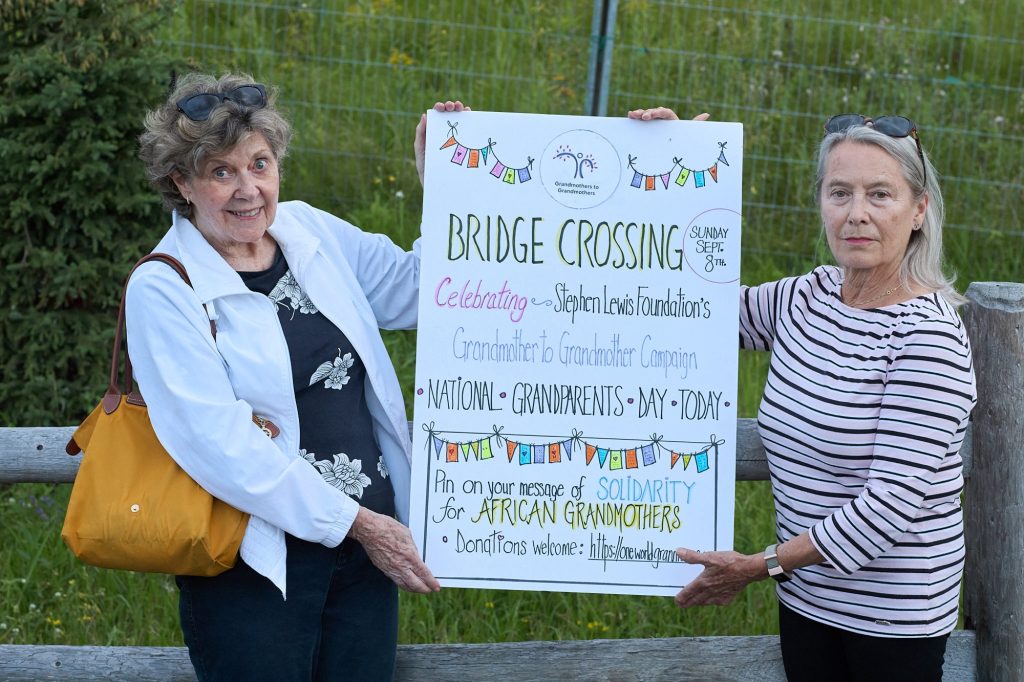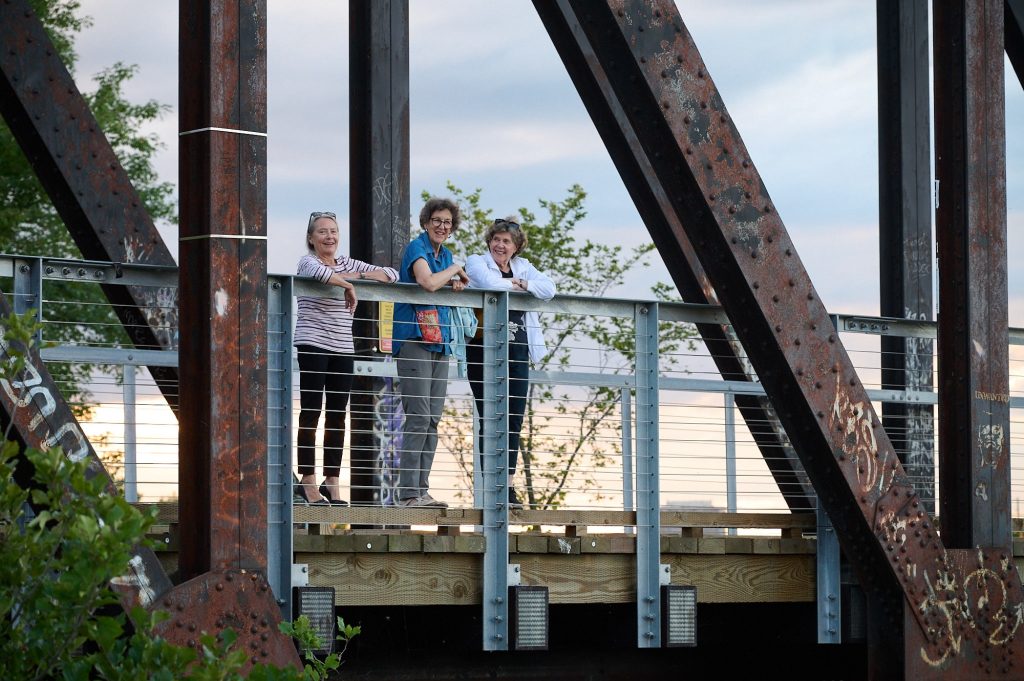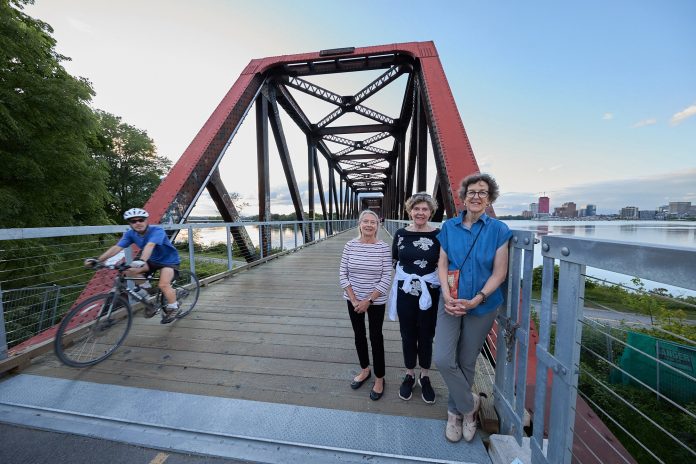Ottawa grannies will be crossing the Chief William Commanda Bridge on Sept. 8 to raise awareness for the HIV/AIDS pandemic in Sub-Saharan Africa.
Falling on National Grandparents Day, the walk is being organized by the Ottawa chapter of volunteer group One World Grannies. The group is just one in a network of “gran groups” in the Ottawa-Gatineau Region that are working to support and
bring awareness to the ongoing HIV/AIDS pandemic, making up the global Grandmothers Advocacy Network.
Dianne Breton, who has been involved with the organization for about a decade, says One World Grannies is “all about advocacy.”
“We will have some place where people can write their thoughts and notes in solidarity and pin it up,” said Breton. “We are hoping people will walk and bike the whole way or at least to the island.”
One World Grannies is inspired by the grandmothers and matriarchs who “stepped in” as the AIDS pandemic began to sweep across Africa. As parents died from the disease, grandmothers began raising their grandchildren, One World says, keeping families alive while grieving their own children.
The early vision for the group started in 2006, three years after the HIV/AIDS grassroots organization Stephen Lewis Foundation was created. It brought 100 grandmothers from sub-Saharan Africa to Canada to meet with 200 grandmothers here.

Ottawa’s Grannies were one of the first to start advocating and raising funds for African grandmothers. To date, over $425,000 has been raised, and the chapter has supported national and international initiatives to improve access to medicine, education and the empowerment of older women.
“A lot of people think HIV and AIDS is over. There has been tremendous progress, but when you get to other countries (in) Africa where the devastation was so dramatic, there are other associated issues that go with it,” said One World Grannies member Shelagh Jane Woods.
In 31 African countries, it is still illegal to be gay. Some of the strictest laws are in Uganda, where Parliament passed the Anti-Homosexuality Act in March 2023.
The Act criminalized consensual same-sex conduct with maximum penalties of life imprisonment. Attempted homosexual acts face prison sentences of 10 years. In addition, the death penalty is on the table for those convicted of “aggravated homosexuality,” which includes same sex acts with a person younger than 18, older than 75, or a person with a disability.
Susan Brown joined One World Grannies about two years ago, and she said many older African women have found their voice after being influenced by their Canadian supporters.
“They are becoming strong advocates for themselves. It’s been a strong turning point and it’s inspiring for us to see,” she said. “Some have even started lobbying their politicians.”
One World Grannies has raised funds in various ways, like with a market held at Lansdowne Park for over five years. The market sold a collection of new and used goods and food, but when the COVID-19 pandemic hit, the grannies had to get creative.
“What we’ve done for the last three years is have a cheese sale in December. We work with Abbaye St. Benoit in Quebec and we’ve been able to sell 600 boxes each year, raising over $30,000,” said Woods.
The Ottawa grandmothers say they are hopeful people crossing the bridge will stop to learn more about their initiative, donate to the cause, and perhaps join their seniors women’s group.
“These are very poor countries with very unsafe conditions. The money we give to the foundation goes not only to treating AIDS patients but also to planting trees and building schools,” Woods said. “The foundation is also very big in supporting LGBTQ+ communities in Africa, including in some countries where it’s still illegal.”
“I hope that people take away that there are huge unmet needs in parts of the world and that there are things that small donations can do to help,” Woods continued. “We are here to help people help themselves.”

Why is HIV/AIDS progressively worse in Africa?
According to SOS Children’s Villages, HIV and AIDS spread rampantly through Africa due to the polygamy and promiscuity practiced in different regions.
Due to poverty, prostitution is also widespread. The suitors are often men who move around freely in search of work and often have multiple sexual partners. It is also the country with the highest rates of rape in the world. In 2017, South Africa reported 70.2 per cent of rapes per 100,000 people compared to 1.4 per cent per 100,000 people in Canada (2012).
The World Health Organization suggests that 25.6 million Africans are currently dealing with AIDS. In 2022, about 380,000 people there died from AIDS-related infections.
HIV, which stands for Human immunodeficiency virus, is an infection that attacks the body’s immune system, and progresses to AIDS at its most advanced stage. HIV targets the body’s white blood cells, weakening the immune system, which makes it easier to get sick with diseases like tuberculosis, infections and some cancers. The disease is spread from the body fluids of an infected person, including blood, breast milk, semen and vaginal fluids.

